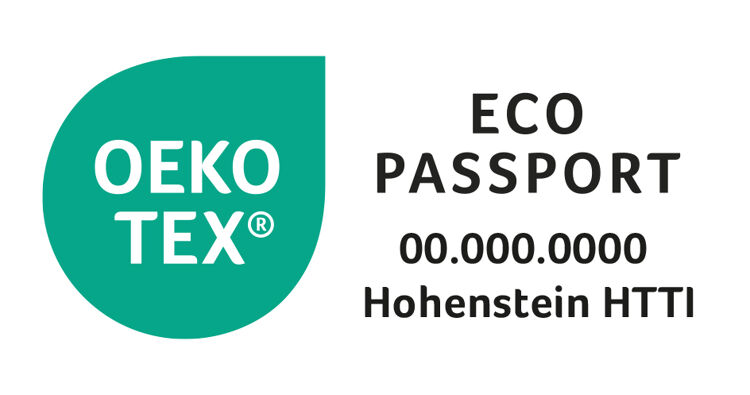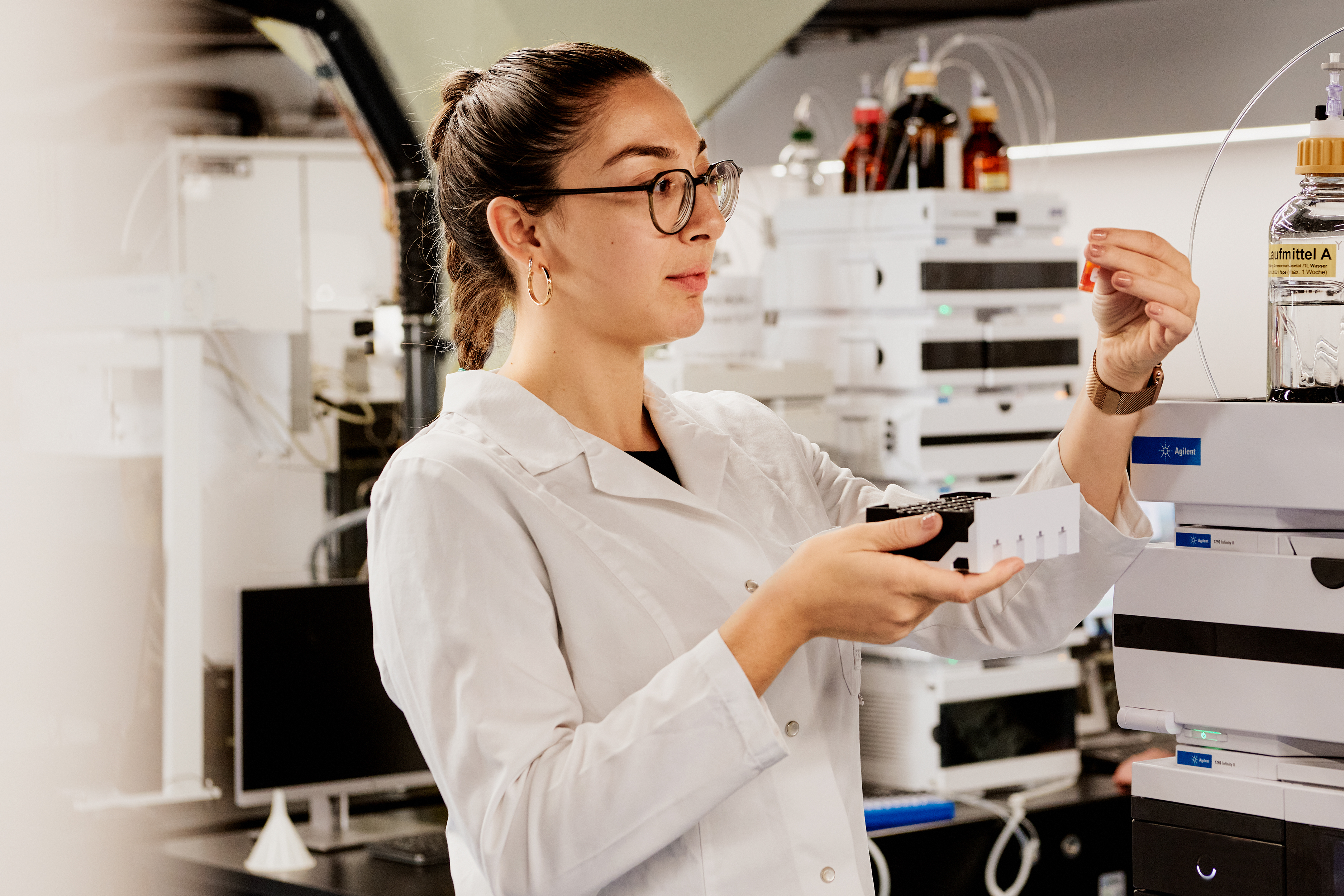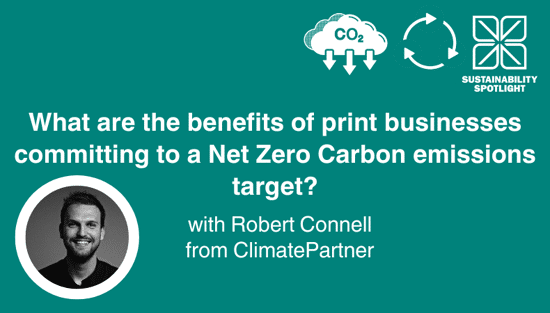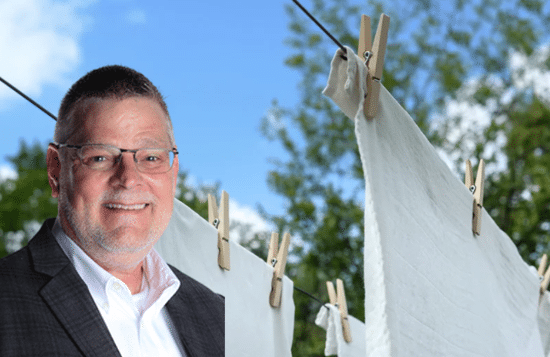Navigating the way to a sustainable future with ECO PASSPORT by OEKO-TEX®

John Murphy, Technical Director Europe at Hohenstein Group shares information on OEKO TEX ECO PASSPORT and how it can assist factories and chemical suppliers to ensure that chemical products and their ingredients meet specific requirements for safety, sustainability and regulatory compliance.
It is now widely recognized that the chemically intensive production of apparel, footwear, textiles, and leather has a significant impact on product safety, the environment and circularity. While some progress has and continues to be made in controlling and combatting the environmental threats posed by widespread industry practices, responsibly navigating the road ahead remains challenging and complex.
To help guide the way, ECO PASSPORT by OEKO-TEX® assists factories and chemical suppliers ensure that chemical products and their ingredients meet specific requirements for safety, sustainability and regulatory compliance. In just five years, it has grown to cover about 13,000 chemical products meeting the strict criteria for ecologically responsible manufacturing. Brands and factories value ECO PASSPORT as credible third-party chemical validation and chemical suppliers use the built-in mechanism to improve products and processes.
Systemic, data-based input control and greener chemistry improves industry performance
To protect people and the planet, greener chemistry works to proactively remove hazardous substances before they enter supply chains. This is far more effective than rejecting unsafe finished goods or reversing environmental damage. However, greener chemistry requires transparent communication, worker training, careful monitoring, and storage. It means global monitoring of laws, restricted substance lists and suppliers. All of this is easier through collaboration, and respected initiatives and independent certification systems that update standards, harmonize across the industry, and verify through testing provide the tools suppliers and apparel and footwear producers need to act sustainably.
A leader since 1992
For over thirty years, OEKO-TEX® has offered practical, tailored solutions for product stewardship and consumer protection. In March 1992, OEKO-TEX® was founded on a single mission: to enable consumers and companies make responsible decisions to protect our planet for future generations. An association of textile and leather testing institutes, OEKO-TEX® created one of the textile industry’s first restrictive substance lists (RSLs) and has partnered with more than 21,000 companies in 100 countries to issue over 235,000 certifications, covering countless products.
In a more recent initiative, ECO PASSPORT by OEKO-TEX® was introduced in 2016 to help suppliers select better chemicals, and prevent toxins and impurities from entering factories, products and ecosystems. ECO PASSPORT is an independent multi-stage testing and certification system for chemicals, colorants and auxiliaries used in the apparel, footwear and textile industries, and employs systemic screening and testing to promote compliance, confidence and cost efficiency.
.jpg?lang=en-GB)
For chemical suppliers, ECO PASSPORT certification provides validation of product stewardship and sustainable practices, a tool which builds client confidence. For textile and leather producers, the certification is a means to reliably control the environmental friendliness and safety of the substances used as early as the procurement stage, even before they are fed into the production process.
The ins and outs of chemical usage
As the saying goes, what goes in must come out. The chemicals and dyes used in apparel, footwear and textile production are not typically food grade quality, nor do they have pharmaceutical purity. Impurities and harmful substances found in textiles, leather, foams, adhesives, prints, metal items and other apparel, footwear and home goods components can adversely affect worker and consumer health. Moreover, if chemicals used in production do not remain in or on the product, they are released into the environment during manufacturing or consumer use, posing a further threat to humans and ecosystems.
One of the greatest challenges is not knowing how many single chemicals are entering facilities. It is estimated that 4,000 to 8,000 individual CAS number chemicals are being used, which doesn’t even begin to cover the number of formulations.
Further Checkpoints: Traceability and Design Thinking
Supply chain traceability and metrics are crucial, but unfortunately, supply chain tracking for chemicals in apparel, footwear and textiles remains extremely limited. Without the right tools in place, brands and retailers risk exposing their customers to harmful chemicals. Tracing materials is also essential to sustainability efforts, such as recycling. Products designed with circularity in mind encourage the reuse of (scarce) raw materials, and reuse can mean less chemicals are utilized in the production process.
Needed at every stage: systematic controls
While product stewardship will always be necessary, a sole focus on the finished good is neither comprehensive nor efficient. Brands are beginning to take responsibility for their entire supply network.
Through the understanding and development of systems, better chemicals can be pulled through supply chains. The need for safer products (OUTPUT) means that factories will use safer chemicals (PROCESS), and chemical suppliers will produce safer, greener chemicals (INPUT). When the right levers are pulled in the “system”, the outcome is better all around.
Testing is a must for credible certification
Many chemical suppliers have robust systems and procedures for managing their dyestuffs and chemicals, but internal reviews can unintentionally miss the mark. A vigorous and reliable certification system requires both CAS number ingredient document checks and regular testing such as that from ECO PASSPORT by OEKO-TEX®.
The multi-stage verification process analyzes whether chemical products and individual ingredients meet specific requirements for sustainability, safety, and statutory compliance, and requires CAS number screening and analytical verification (testing). As part of the traceable OEKO-TEX® system, ECO PASSPORT certified chemicals reduce risk and testing costs for downstream customers. ECO PASSPORT limits are directly tied to STANDARD 100 and LEATHER STANDARD by OEKO-TEX® product certifications for harmful substance safety and are harmonized with STeP by OEKO-TEX® facility certification for worker and environmental protection.
Test, verify, and test again
Testing chemicals is the only way to detect impurities, accidental or otherwise. Created by OEKO-TEX® member institutes, such as Hohenstein, which have been testing textile chemicals for decades, ECO PASSPORT’s reality-based testing matrix covers the critical substances for each chemical group and type and determines frequency of testing based on risk. Thus, higher risk substances are tested more often, less risky substances are spot checked, and others are only control tested. The matrix is adjusted each year based on thousands of test results. Since its launch in 2016, almost 13,000 chemical products are now certified, and the certified chemical suppliers are easily accessible online in the free OEKO-TEX® Buying Guide.
Approximately one percent of ECO PASSPORT tests have resulted in a failure during certifications or renewals. Some failures come from a bad sampling procedure, or a new failure on renewal could signal an unreported change in process or sourcing. Most often, failures are caused by an incorrect or contaminated ingredient.

The ECO PASSPORT failure feedback serves as a “mini alternatives assessment” for chemical suppliers. Most ECO PASSPORT applicants will use the feedback and collaboration to resolve the situation, and many failures have even led to improvements in the chemical company’s supply chain or processes.
To learn more, please visit www.hohenstein.com/eco-passport or contact customerservice@hohenstein.com.
Topics
Recent news

What are the benefits of print businesses committing to a Net Zero Carbon emissions target?
We speak to Robert Connell, Senior Commercial Sustainability Manager at ClimatePartner who who offer solutions along the net zero cycle to support business’s effort in corporate climate action. In this discussion we discuss the importance and the process and benefits of businesses committing to a Net Zero Carbon emissions target.

6 Sustainable Printing Practices Changing the Game in Textile and Apparel Decoration
The textile industry is shifting towards sustainability. Innovations like waterless and digital printing, eco-friendly inks, and recycled materials are reducing waste. AI and automation optimise production, while circular models promote reuse. Consumer demand for transparency drives this change, making sustainable practices essential for future-focused brands.

Sustainability in Production Print: Advancing Practices in Wide Format, Textiles, and Software
As sustainability continues to take centerstage across industries, the production print sector is making massive strides in integrating eco-conscious practices. From wide format to textile applications, with the growing reliance on advanced production software, the space is evolving to meet environmental goals as well as consumer demand for sustainable products.

Why must the print industry recognise software and material innovation
Laurel Brunner argues that the printing industry must recognise the value of both software and material innovation, and be willing to pay for it. Software, though intangible, drives efficiency and reduces carbon footprints. While materials science currently dominates, R&D costs are inherent in all advancements. Paying a premium ensures continued progress, benefiting the industry's evolution and sustainability.